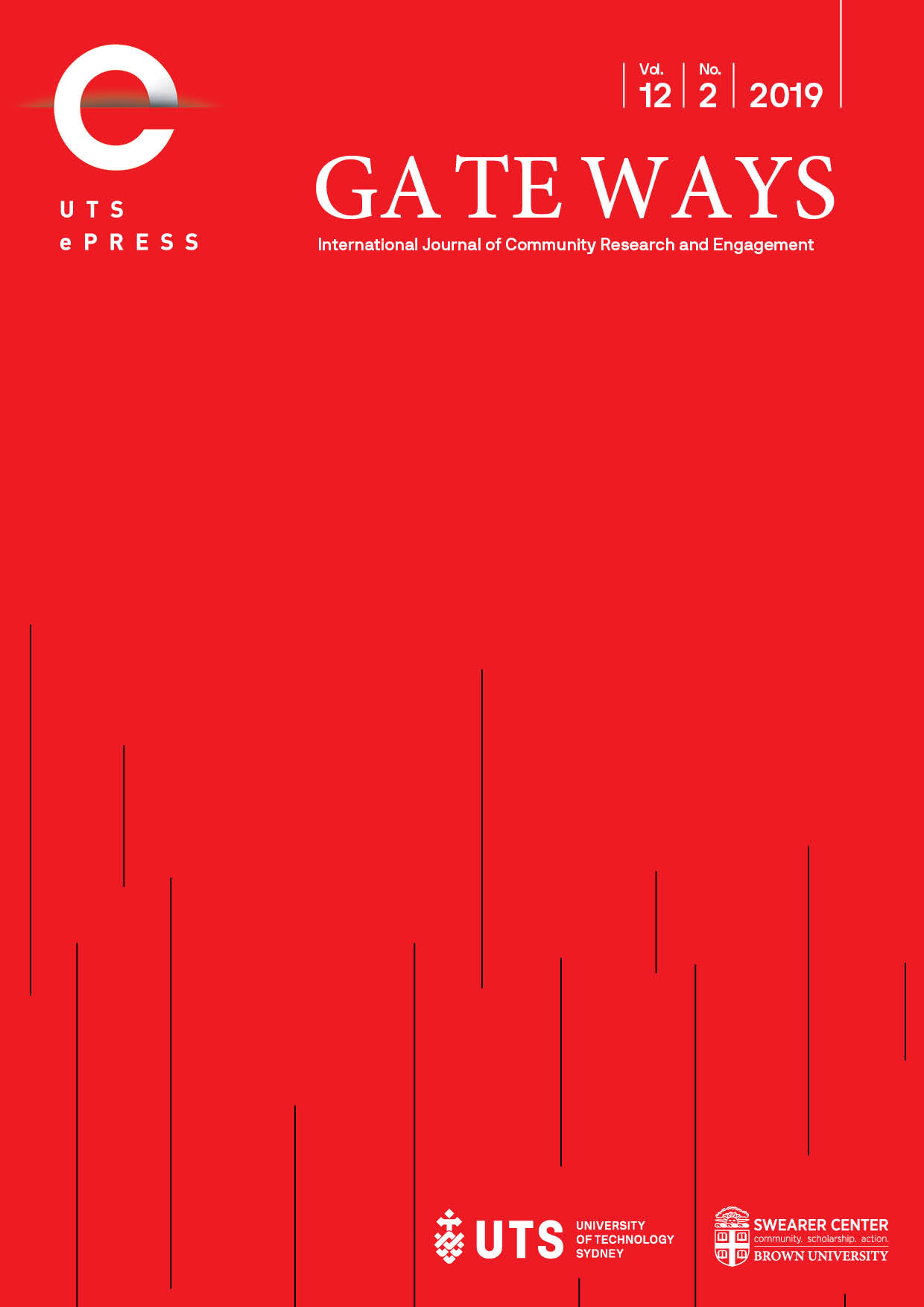Ensuring durability of community-university engagement in a challenging context: Empirical evidence on Science Shops
Main Article Content
Abstract
Universities’ community engagement is confronted with growing pressure from increased competition and marketisation of knowledge, along with widespread adoption of New Public Management measures. This context is notably challenging for forms of engagement that are based on such principles and practices as cooperation, knowledge democracy and public value. Within this framework, this article identifies competencies and strategies that may ensure durability of community-university partnerships.
The article presents the results of two different, yet coherently connected, research endeavours on Science Shops in Europe. Science Shops are a unique way to organise relationships between science and society mainly by responding to research questions arising from citizens and/or Civil Society Organisations (CSOs), usually by means of a participatory methodology and active involvement of students.
Empirical evidence for this article was gathered by means of a wide range of different techniques, such as structured questionnaires, focus groups, interviews, direct observation and document analysis. In the first research effort, a questionnaire was delivered to European Science Shops in order to produce mainly descriptive statistics prior to progressing to case studies and focus groups which would generate more in-depth knowledge and understanding. The second study program was connected to formative and summative evaluation of a European Commission funded project aimed at embedding Responsible Research and Innovation (RRI) in Higher Education curricula through Science Shops (namely EnRRICH – Enhancing Responsible Research and Innovation through Curricula in Higher education). Participatory evaluation was carried out mainly on pilot projects run by project partners.
Results are discussed in the light of relevant literature regarding possible strategic assets that may enable Science Shops and Community Engagement units to overcome observed fragility and ensure durability. This can be pursued through systematic mobilisation of specific knowledge, competencies and abilities. Combinatory capacity and boundary spanning are pinpointed as specific components of Science Shops’ action, which – we maintain – are also key strategic assets to consolidate their role and ensure durability. The distinction between the ‘instrumental/operational’ and ‘strategic’ function of boundary spanning is introduced in order to analytically develop this argument.
Article Details
Issue
Section
Authors who submit articles to this journal from 31st March 2014 for publication, agree to the following terms:
a) Authors retain copyright and grant the journal right of first publication with the work simultaneously licensed under a Creative Commons Attribution License that allows others to share and adapt the work with an acknowledgement of the work's authorship and initial publication in this journal.
b) Authors are able to enter into separate, additional contractual arrangements for the non-exclusive distribution of the journal's published version of the work (e.g., post it to an institutional repository or publish it in a book), with an acknowledgement of its initial publication in this journal.
c) Authors are permitted and encouraged to post their work online (e.g., in institutional repositories or on their website) prior to and during the submission process, as it can lead to productive exchanges, as well as earlier and greater citation of published work (See The Open Access Citation Advantage Service). Where authors include such a work in an institutional repository or on their website (ie. a copy of a work which has been published in a UTS ePRESS journal, or a pre-print or post-print version of that work), we request that they include a statement that acknowledges the UTS ePRESS publication including the name of the journal, the volume number and a web-link to the journal item.
d) Authors should be aware that the Creative Commons Attribution (CC-BY) License permits readers to share (copy and redistribute the work in any medium or format) and adapt (remix, transform, and build upon the work) for any purpose, even commercially, provided they also give appropriate credit to the work, provide a link to the license, and indicate if changes were made. They may do these things in any reasonable manner, but not in any way that suggests you or your publisher endorses their use.
For Volume 6 (2013) and before, the following copyright applied:
Articles published by UTSePress are protected by copyright which is retained by the authors who assert their moral rights. Authors control translation and reproduction rights to their works published by UTSePress. UTSePress publications are copyright and all rights are reserved worldwide. Downloads of specific portions of them are permitted for personal use only, not for commercial use or resale. Permissions to reprint or use any materials should be directed to UTSePress.
